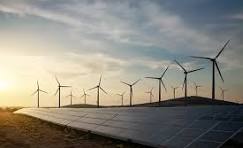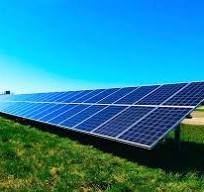By Gabriella Porelli,
In the face of accelerating climate change and depleting fossil fuel reserves, the adoption of clean energy sources has become imperative for a sustainable future. Clean energy, derived from renewable resources such as sunlight, wind, water, and geothermal heat, offers a myriad of advantages that extend beyond environmental benefits. This article explores the numerous advantages of using clean energy and why it is a crucial step towards creating a greener and more sustainable world.

One of the most significant advantages of clean energy lies in its minimal environmental impact. Unlike traditional fossil fuels, which release harmful pollutants and greenhouse gases into the atmosphere, clean energy technologies produce little to no air or water pollution. By reducing emissions, we can mitigate climate change, improve air quality, and protect ecosystems, promoting a healthier environment for both humans and wildlife.
The burning of fossil fuels is a major contributor to the rising levels of greenhouse gases, leading to global warming. Clean energy sources such as solar, wind, and hydropower generate electricity without emitting carbon dioxide and other pollutants. By transitioning to these renewable sources, we can significantly reduce our carbon footprint and combat climate change, preserving the planet for future generations.
Investing in clean energy helps nations reduce their dependence on imported fossil fuels. By harnessing domestic renewable resources, countries can enhance their energy security and reduce vulnerability to geopolitical tensions or fluctuations in global oil markets. This shift towards energy independence strengthens national economies and promotes a more resilient energy infrastructure.
The clean energy sector has emerged as a robust engine for job creation and economic growth. The transition to renewable energy technologies requires skilled workers in manufacturing, installation, maintenance, and research and development. As governments and businesses invest in clean energy initiatives, they stimulate economic activity, create jobs, and foster innovation, ultimately contributing to sustainable economic development.

The pursuit of clean energy has driven significant advancements in technology. Research and development in solar panels, wind turbines, energy storage systems, and smart grids have led to more efficient and cost-effective solutions. These innovations not only enhance the performance of clean energy systems but also have broader applications in various industries, fostering a culture of technological progress.
The cost of renewable energy has been steadily decreasing, making it increasingly competitive with traditional fossil fuels. Advances in technology, economies of scale, and government incentives have contributed to the affordability of clean energy solutions. As a result, businesses and consumers alike can benefit from cost-effective and sustainable energy alternatives, driving widespread adoption.
Embracing clean energy is not just a matter of environmental stewardship; it is a strategic and necessary step toward building a sustainable future. The advantages, ranging from environmental protection and mitigating climate change to economic growth and technological innovation, highlight the multifaceted benefits of transitioning to renewable energy sources. By prioritizing clean energy, we can pave the way for a more resilient, equitable, and environmentally conscious global energy landscape.
Source Worldenvironment Magazine
